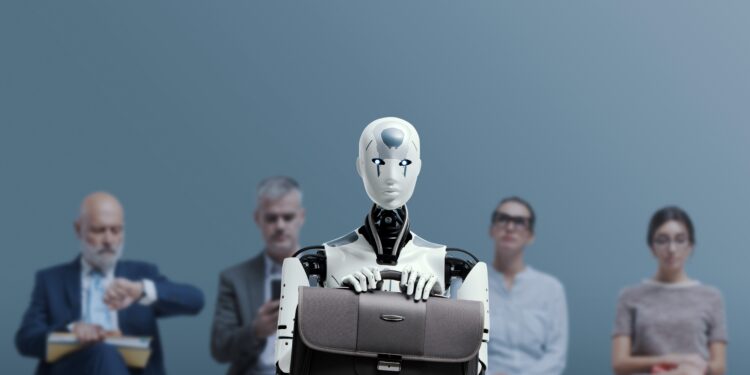Although the worldwide boom in generative artificial intelligence is expected to usher in an age of accelerated productivity and prosperity for some, for others it will lead to and profound disruption.
According to a new report by consultants McKinsey & Co., those most affected negatively will be knowledge workers.
Entire segments of business activity, from sales and marketing to customer operations, are due to be more embedded in software that could reap economic benefits of as much as $4.4 trillion, about 4.4% of the world economy’s output, the report said, adding that generative AI will give humans a new “superpower,” and the economy a much-needed productivity injection.
McKinsey said that AI has the potential to spur $2.6 trillion to $4.4 trillion in value across industries.
The research reviewed 63 cases for generative AI, tools that can generate content such as text or images based on a prompt, across 850 occupations.
The study found that, depending on how the technology is adopted and implemented, productivity increases could range between 0.1% and 0.6% over the next 20 years.
“Business leaders need to understand which activities can be changed, and how they want to rethink that,” said Yee. “That is a leadership choice, and it’s also execution.”
The report said that the transformation will put pressure on the labor force, especially for higher-wage knowledge workers whose activities “were previously considered to be relatively immune from automation.”
McKinsey likewise said that as high as 60% to70%. of worker hours worldwide are spent on tasks that could be automated.
“Workers will need support in learning new skills,” the report said. “Some will change occupations.”
Roughly 75% of the potential value from applied generative AI will come in four business functions: customer operations, marketing and sales, software engineering and research and development, the report said.
According to McKinsey, the banking sector could generate an additional $200-$340 billion from increased productivity, as the new technology improves customer satisfaction, helps decision-making and mitigates fraud through better monitoring, potentially increasing operating profits of somewhere between 9% and 15%.
And in product R&D, AI technology could boost productivity between 10% to 15%, McKinsey said. This could add as much as 25% to profits for pharmaceutical companies and medical product firms.
McKinsey said that later this year, AI technology will be able to match the typical human’s performance in tasks that involve “natural-language understanding.”
The report concluded that automation adoption will be faster in developed economies than in poorer ones since higher wages will make it feasible sooner.
The AI boom will impact white-collar work much more than physical tasks.












